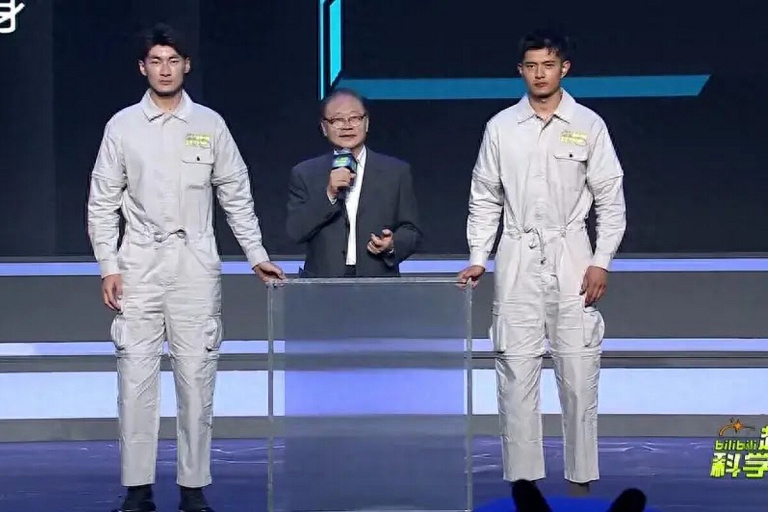
China has been developing an invisible cloak like Harry Potter’s for years. It sounds like magic, but it’s all science
GVTech News China has been developing an invisible cloak like Harry Potter’s for years. It sounds like magic, but it’s all science
While disappearance seemed limited to the pages of fairy tales, China is pushing the boundaries of reality with amazing technology that blends science and magic.
Magic of Science: An Invisibility Cloak worthy of Harry Potter!
The search for invisibility, long associated with magic, has become a scientific fact in China. Zhou Junhao, chief physicist and director of the College of Science at Donghua University, She stunned the audience at a scientific conference in Shanghai by presenting a revolutionary new substance.
This plate, equipped with a lenticular grid, is constructed of small convex cylindrical lenses The effect of refraction of light makes some objects invisible. In a stunning display, Junhao’s legs mysteriously disappeared after the transparencies were rotated 90 degrees, a reference to a particular invisibility cloak dear to Harry Potter.
This progress, far from magic, is based on scientific principles. Perpendicular retinal lenses can contract and bring thin objects parallel to them, allowing light to be refracted.
Each cylindrical convex lens can create multiple images that are too small for the eye to see, thus producing a disappearing effect
It’s a feat that has already excited the academic, as he humorously declared that “everyone will have a Harry Potter Invisibility Cloak in the closet” thanks to this emerging technology.
Towards a technological revolution?
The obsession with disappearance is not new, and China has been exploring this frontier for several years. Similar research is also being conducted in the United States. In 2019, the Canadian company Hyperstealth Biotechnology announced the filing of patents for a material capable of making invisibility cloaks.. Although the progress is impressive, its practical application to the general public still seems elusive.
Demonstration of invisibility by the Chinese Academy of Sciences

In December 2022, The students designed InvisDefense, a coat capable of concealing the human body from video surveillance camerasStressing the need to improve the recognition technology for these cameras. However, the field of invisibility finds clear application in a specific sector: the military sector.
The military applications of this technology are obvious. For many years, various techniques have been used in the development of fighter aircraft to make them invisible to enemy radars. Developments, such as one announced by China in April 2022 to make ground military vehicles undetectable, demonstrate the strategic importance given to this technology.
It remains to be seen how the materials provided by Zhou Junhao and his team will be used in the military context. The search for disappearances, once fueled by fairy tales, is now taking on a promising scientific dimension in China.
Zhou Junhao’s discovery during these Science Days in Shanghai sparked a mixture of astonishment and excitement in the scientific world. However, beyond the fun aspect mentioned by the physicist, the practical applications of this technology are interesting. The ability to make objects or individuals invisible opens the door to major advances in various fields, from security to space exploration. Chinese researchers and engineers are already working on prototypes that could revolutionize traditional methods of concealment and camouflage.
but, The obsession with stealth also raises ethical and security concerns. While this technology can be exploited for military purposes, it poses challenges in terms of surveillance and secrecy. Discussions about the regulation and responsible use of this scientific advance are only just beginning, illustrating the complexities that accompany every technological breakthrough. Invisibility in real life may be one of the most mysterious innovations of the 21st century, inspiring both fascination and anxiety.

“Organizer. Social media geek. General communicator. Bacon scholar. Proud pop culture trailblazer.”
